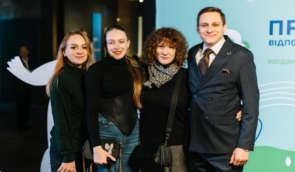The Russian Federation systematically persecuted local authorities in the occupied territories to establish control: ZMINA presented a new report
On 27 June, the Human Rights Centre ZMINA presented an analytical report “Become mayor or we will break your legs”: crimes against local authorities as a tool of Russian occupation policy”, which reveals a large-scale and systematic practice of persecution of local government representatives in the territories occupied by Russia after 24 February 2022.
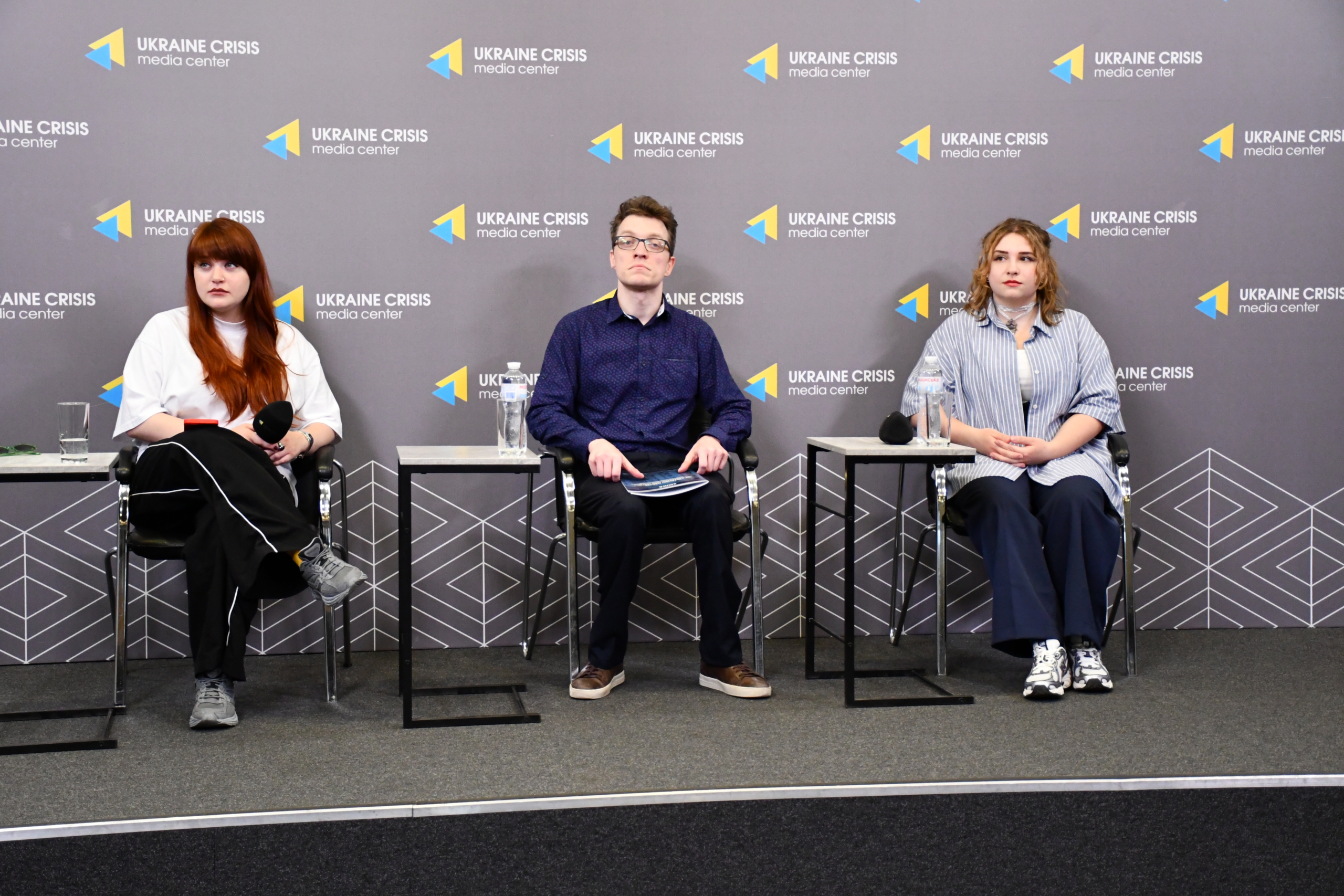
The presentation took place at the Ukraine Crisis Media Center. Participants: Borys Petruniok, War Crimes Documentor and Analyst of the Human Rights Centre ZMINA, author of the report, Onysiia Syniuk, Legal Analyst of ZMINA, and Andrii Solopov, Head of the Pryazovske Village Council in the Melitopol district, Zaporizhzhia region, who joined online. Moderator: Yelyzaveta Sokurenko, Head of War Crimes Documentation Department of the Human Rights Centre ZMINA.
“The report covers 133 cases of persecution in the Kherson, Kharkiv, Zaporizhzhia, Chernihiv and Kyiv regions, documented by the Human Rights Centre ZMINA on the basis of in-depth interviews and open sources of information. These are cases that occurred in the temporarily occupied territories after 24 February 2022. The objective of this research is to analyse the violations committed against local government representatives and to determine the motive for singling out this group of civilians as a target for attack,” Yelyzaveta Sokurenko stated at the opening of the event.
Borys Petruniok noted that the report documents not only individual cases of persecution but also proves the existence of a targeted policy by Russia: repressions against local government representatives became a tool for the occupying state to establish its administrative vertical in the occupied territories.
“By local government representatives, we mean not only mayors or heads of village councils. These are also heads of village councils, heads of utility companies, school principals, educators, deputies – people who have authority in their community and often remained under occupation for the sole purpose of maintaining basic life support processes, from water supply to garbage removal,” explained the author of the report, war crimes documentor and analyst of ZMINA.
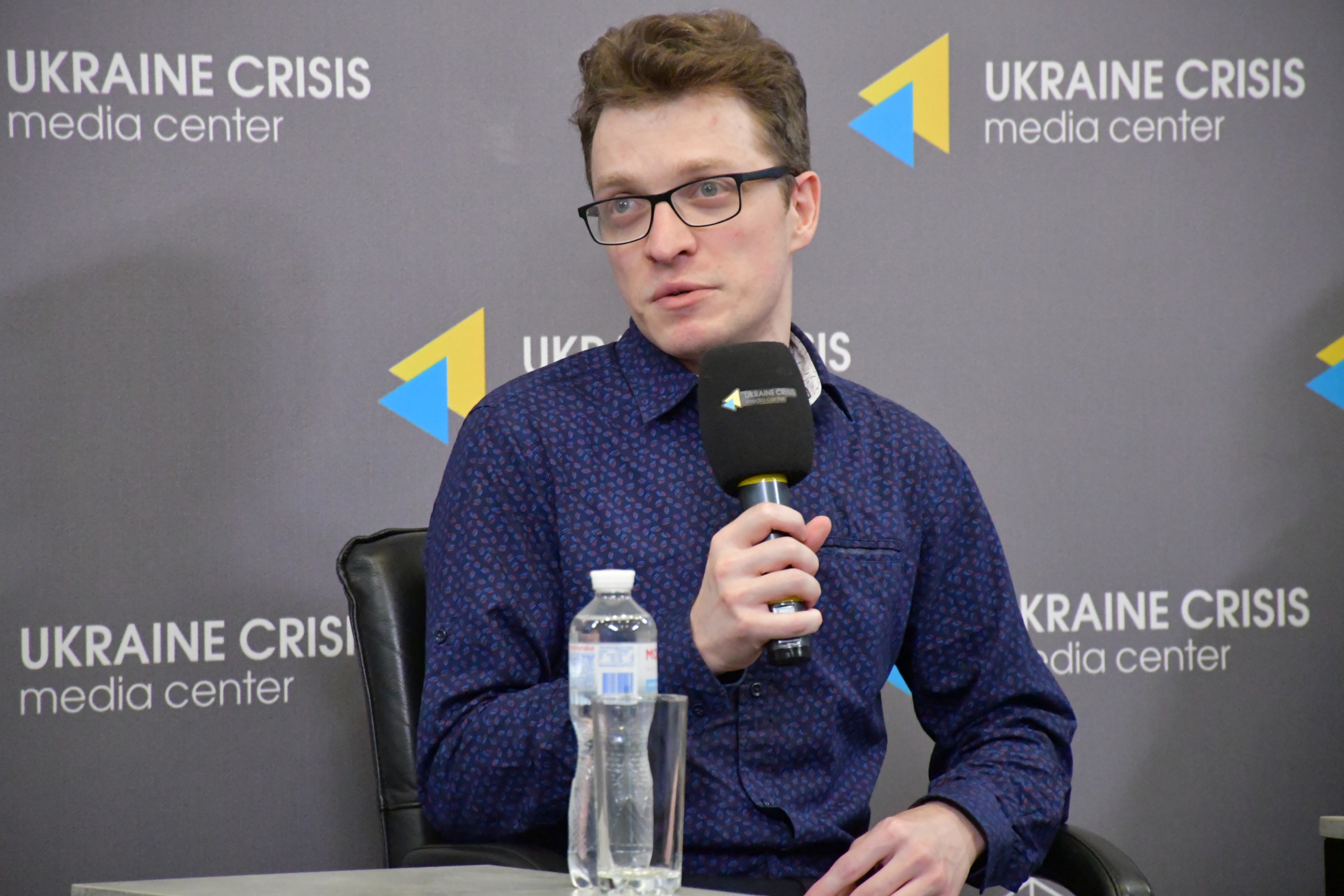 Borys Petruniok
Borys PetruniokHe noted that these individuals posed an obstacle to the occupiers, as they embodied legitimate Ukrainian authority and were points of resistance. To remove them from the field, Russia resorted to its usual methods — blackmail, torture, and abductions. The author of the report noted that most of the victims were heads of communities, their deputies or members of local councils. All of these people were targeted for abduction, torture, unlawful detention, and in some cases, murder.
“The Russian Federation was purposefully building its own system of governance, according to the so-called Federal Constitutional Laws on the “accession” of the occupied territories. In order to change the government, they had to break the resistance from within — by repressing those who kept the community together,” added Borys Petruniok.
Onysiia Syniuk spoke about the tools Russia used to implement its system of governance in the occupied territories.
“The tools themselves do not differ much from the general Russian policy of persecuting civilians in the occupied territory. These include unlawful detentions, torture, cruel treatment, and enforced disappearances. What distinguishes violations against local government representatives is the motive for these detentions: to persuade them to cooperate, and in case of refusal, to detain and isolate them from the community. Among the side motives are also obtaining information about the community and finding out the position and opinion of the authorities,” said the legal analyst of ZMINA.
She also added that among the Russians’ tools was the holding of illegal so-called “referendums” in the occupied territories: “This is a very characteristic feature of the Russian Federation, using democratic tools, distorting their content and distorting their purpose. That’s why they started with these “referendums” allegedly on the accession of the occupied territories to the Russian Federation. And then they started with the full implementation of the Russian system in these territories: administrative, judicial, law enforcement, and educational. In fact, Russia is leaving nothing Ukrainian in the occupied territories“.
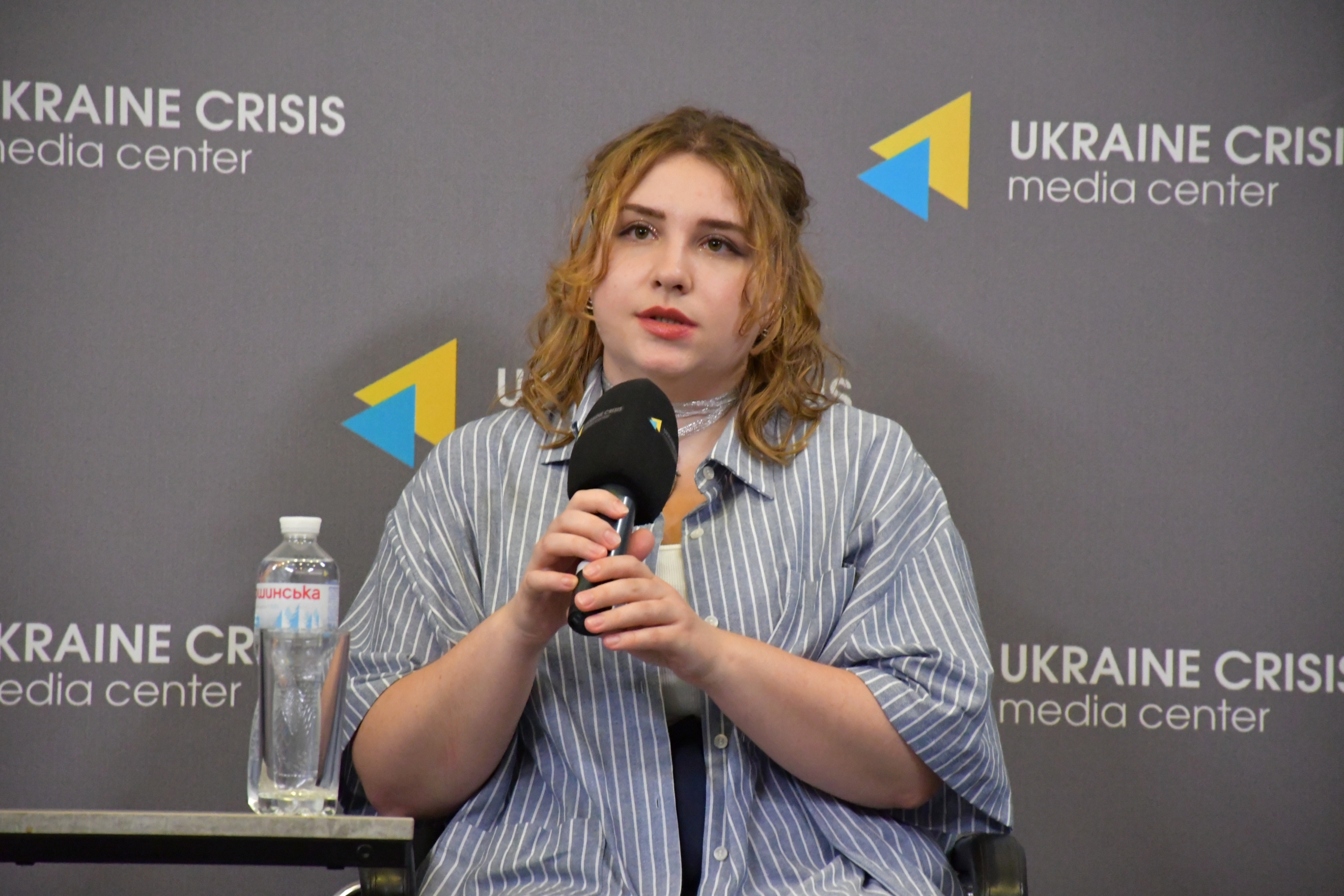 Onysiia Syniuk
Onysiia SyniukOnysiia Syniuk stressed the need for a systematic state response to the documented crimes. She outlined the key recommendations arising from the research: to ensure effective documentation of crimes against local officials; to develop protocols of action for government officials in the event of occupation; to launch information campaigns to support victims and their families; and to qualify persecution as crimes against humanity as part of an international investigation.
“The presented report is yet another evidence that for Russia, the war is not only an armed aggression, but also an attempt to erase the very idea of local self-government and political autonomy of communities. While Ukrainian officials remain under occupation at the risk of their lives to keep their towns and villages alive, Russia is turning them into targets. And this crime must not go unpunished,” concluded Syniuk.
Andrii Solopov, Head of the Pryazovske village council in Melitopol district, Zaporizhzhia region, whose community came under occupation almost immediately after the invasion began, shared his experience of facing direct pressure from the Russian occupiers. He described how the community was occupied and what exactly led to his unlawful detention.
“Our community was occupied by Russians on 25 February 2022. The most important thing we faced from the very first days was the loss of logistical connections. In the early days, we set up an emergency commission, organised a humanitarian hub, and gathered food supplies. In those first days, the occupation authorities were not interested in us; there were only the military who were going to Mariupol. And on 1-2 March, the Russians began to set up checkpoints with the occupiers and began to regulate movement in the community. On 19 March, the Russian military came to the village and seized the administrative building and summoned me. Representatives of the Russian special services asked me if I planned to continue working with the new administration that was being established in Melitopol. I refused, and on Monday, I convened a meeting with local deputies and representatives of all budgetary institutions of the community, where I explained what had happened, voiced my position on refusing to cooperate with the occupiers, read out the provisions of the article on collaborationism and warned everyone against cooperation with the occupiers. Already at 12 o’clock, aggressive representatives of the “DPR” arrived, searched me, my deputy, the chief police officer of the community and then they covered our faces with hats, forced us into vehicles, and took us to Melitopol,” Solopov said.
He also reported that in the place of unlawful detention, they were lying on the floor with their eyes blindfolded, kicked and interrogated.
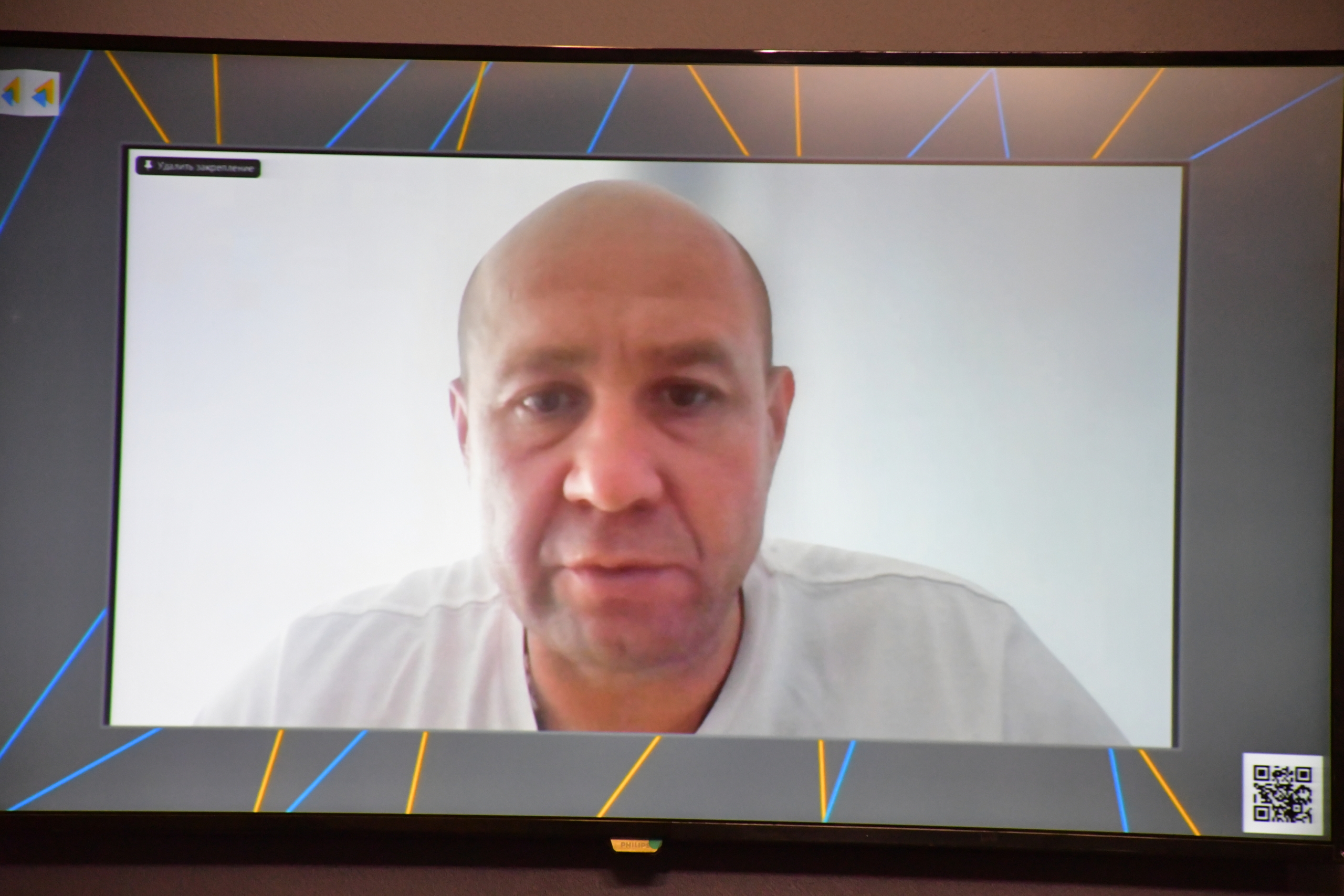 Andrii Solopov
Andrii SolopovYelyzaveta Sokurenko noted that at least seven local government representatives are currently known to be unlawfully held by the Russian Federation. This list is not exhaustive. It includes: Mykola Masliy, a member of the Kupiansk City Council in the Kharkiv region; Oleksandr Babych, the Mayor of the town of Hola Prystan, Kherson region; Volodymyr Mykolaienko, the former Mayor of Kherson; Ihor Kolykhaiev, the Mayor of Kherson; Anatolii Siryi, the Head of the village of Novi Borovychi, Chernihiv region; Ihor Protokovylo, a member of the Nova Kakhovka Local Council of the Kherson region; and Oleksandr Zarivnyi, the Head of the Humanitarian Policy Department of the Kherson District State Administration.
It is important to note that, unfortunately, there are cases of deaths among local government representatives as a result of violent actions by the Russian Federation. This is the case of the murder of Olha Sukhenko, the Head of the village of Motyzhyn, and her family. This is the case of the deaths of Yurii Prylypko, the Head of the village of Hostomel, and Oleksii Vynnychenko, the Head of the village of Hrebennykivka in the Okhtyrka district of the Sumy region. This is the death of Yevhen Matvieiev, the Mayor of Dniprorudne: he was abducted in March 2022 and his body was returned in December 2024 as part of a repatriation programme. All this time, the man had been in unlawful detention.
The authors of the report called on the Ukrainian authorities to be more systematic in documenting crimes against local government representatives and urged international institutions to put more pressure on Russia to release unlawfully detained and convicted persons.
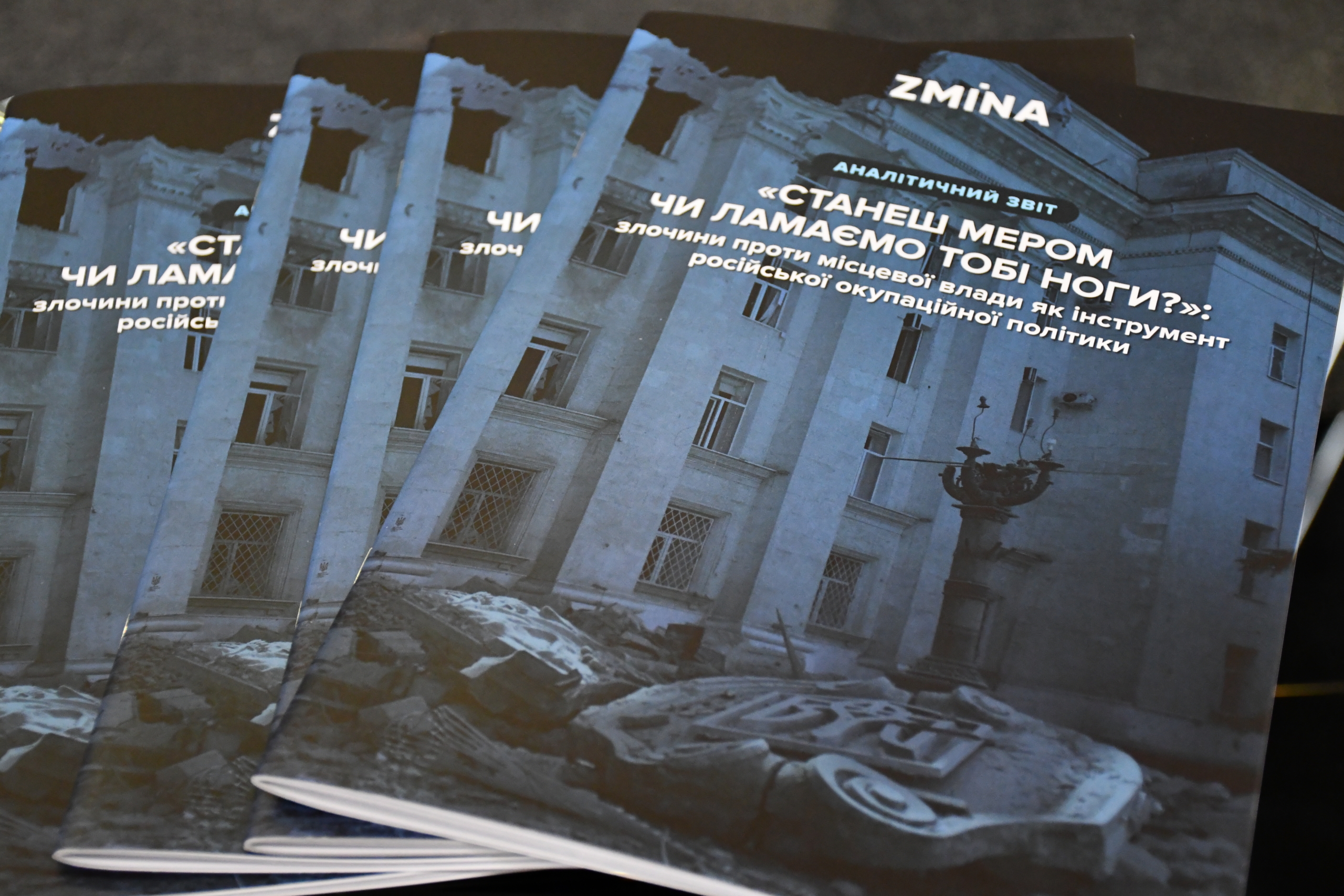
The full video of the event is available here.
The analytical report is available on the website of the Human Rights Centre ZMINA in the Ukrainian and English languages.
This report was prepared as part of the project “Fighting impunity for the gravest international crimes in the context of the Russian armed aggression in Ukraine”, implemented with the support of the Swiss Federal Department of Foreign Affairs. The views and ideas expressed in this publication are solely those of the author(s) and do not reflect the position or policy of the Swiss Federal Department of Foreign Affairs or the Swiss Government.
If you have found a spelling error, please, notify us by selecting that text and pressing Ctrl+Enter.




